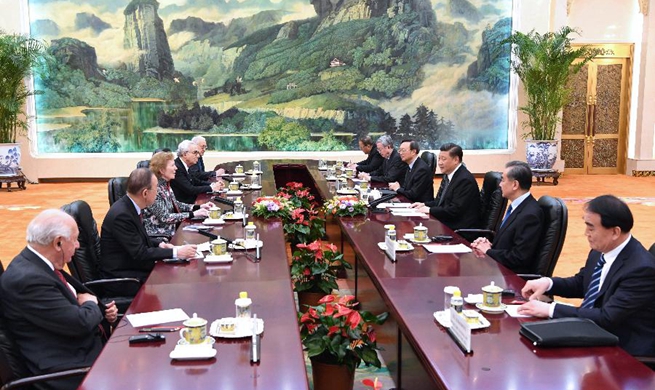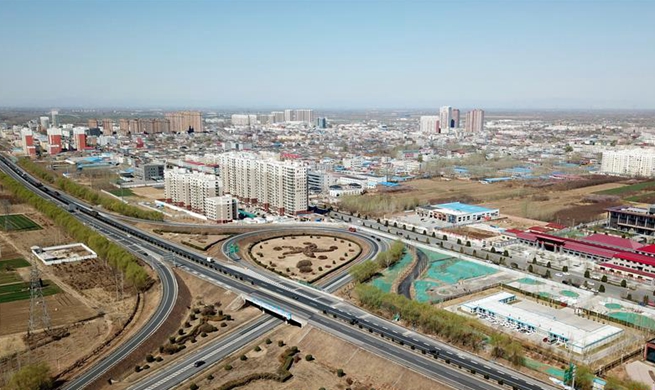MANILA, April 3 (Xinhua) -- The Philippines' economic growth is likely to quicken this year as strong domestic investment and consumption are expected to offset slowing demand from advanced economies and possible farm losses due to the dry spell brought about by the El Nino weather phenomenon, the Asian Development Bank (ADB) said in a report released on Wednesday.
In the newly published Asian Development Outlook (ADO) 2019, which is ADB's flagship annual economic publication, the ADB projects Philippine gross domestic product (GDP) growth at 6.4 percent in 2019 and 2020, up from 6.2 percent in 2018.
The low unemployment rate, a sustained rise in remittances and slowing inflation all bode well for continued improvement in private consumption, the report said.
Moreover, the ADO said increased public investments in social services and infrastructure will also greatly contribute to economic growth.
"The Philippine economy is on a healthy growth trajectory, with public and private investment sustaining strong growth for the economy this year and next," said ADB Country Director for the Philippines Kelly Bird.
"The risks to the growth outlook are tilted on the downside, with rising local investments likely offsetting any impact from a faster-than-expected slowdown in the global economy," he added.
The ADO said the rollout of priority public investments in infrastructure, such as bridges, expressways, ports and railways nationwide, will ensure that prospects for private investment remain bright, given better access to markets and job opportunities.
"Momentum in private construction is expected to be sustained by continued strong demand for office and retail space and housing," the report said.
In addition, the ADO said the services and manufacturing sectors will also be the main growth drivers in the near term. Strong retail trade and expansion in business process outsourcing will continue to spur growth in services.
Inflation is expected to ease to 3.8 percent in 2019 and 3.5 percent in 2020, against 5.2 percent in 2018, as global oil prices moderate, food supply improves with a recent law replacing quantitative restrictions on rice imports with tariffs, and last year's monetary tightening continues to be effective, according to the report.
A major policy challenge is the structural and policy impediments to agriculture growth, the report said, adding that agriculture has been underperforming for the past two decades, growing by an average of 1.5 percent annually from 2011 to 2018.
With half of the country's population residing in rural areas and agriculture providing a quarter of the country's total employment, the farm and off-farm income generating activities are critical for fostering inclusive growth.
The ADO said the law liberalizing rice importation and establishing the Rice Competitiveness Enhancement Fund provides a unique opportunity to lift rural incomes by enhancing farm productivity and helping farmers to produce higher value crops.
"But more needs to be done, such as investing in rural infrastructure, better irrigation, crop insurance, and innovation that engage private sector providers of extension services to farmers," the report said.
At the same time, the ADO said it is important for the government to support emerging growth industries in rural areas such as tourism which generate off-farm income.
















